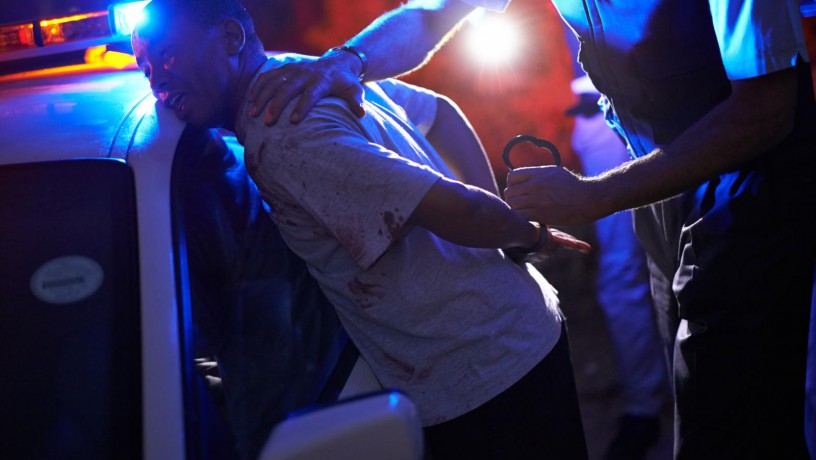Making a living as an actor is not easy. One solution to keep your chops up is Micro-Expression Training for Law Enforcement and Security.
While traditionally we might think of actors as belonging exclusively on the stage or in front of the camera, their skill sets are being sought after in unexpected places. One such area is within law enforcement and security agencies, where actors are providing unique and valuable insights into the world of micro-expressions and body language analysis. By leveraging their in-depth knowledge of emotion portrayal and reception, actors are creating an impactful and transformative change in the approach to criminal investigations.
Micro-expressions, fleeting, involuntary facial expressions that last only a fraction of a second, have long been a cornerstone of the actor’s craft. Their ability to detect and emulate these distinctions contributes significantly to the authenticity and depth of their performances. Translated into the law enforcement context, the understanding of these subtle cues can be a game-changer, offering insight into a suspect’s emotions or deception.
The transfer of skill goes beyond a single path. Actors and law enforcement officers have much to gain from sharing their knowledge and expertise with each other. Actors possess exceptional talent in portraying and recognizing emotions, while law enforcement officers are skilled at identifying suspicious conduct and potential criminal actions. The fusion of these proficiencies has led to an innovative approach in both acting and law enforcement training, presenting an effective instrument for revealing concealed realities.
Merely recognizing micro-expressions is insufficient; comprehending the context in which they arise is paramount. Understanding the timing and reasons behind these expressions is a crucial component of the process. By leveraging their expertise in character building and narrative construction, actors can aid law enforcement officials in developing a more comprehensive perspective on the people they encounter. They can facilitate officers’ comprehension that facial expressions extend beyond mere responses to inquiries; rather, they reflect reactions to circumstances, recollections, or distinct emotions.
Micro-expression training involves much more than just facial recognition. It’s about creating empathy, understanding, and a connection to the person on the other side. It’s a skill that is innately human, yet often overlooked or underestimated. In acting, this empathetic connection is used to bring characters to life and connect with the audience. In law enforcement, it’s used to defuse tense situations, gain trust, and uncover valuable information.
Traditional approaches to questioning primarily concentrate on discerning verbal cues and explicit manifestations of deceitfulness. A substantial portion of human interaction occurs through non-verbal means. It’s been suggested by studies that as high as 93% of communication hinges on nonverbal indicators like facial expressions, gestures, and bodily movements. By tapping into this extensively overlooked reserve, law enforcement officers can attain a deeper comprehension of an individual’s emotional state and intentions.
Why Should Actors be the Ones to Teach These Techniques?
The reason lies in the fundamental essence of acting. Through years of training, actors become experts at depicting and comprehending human emotions, motivations, and behaviors. They become skilled at immersing themselves in various characters, experiencing their emotions firsthand, and effectively conveying those feelings to an audience. Consequently, they possess exceptional qualifications for instructing micro-expression and body language analysis.
Adding actors to law enforcement injects a rejuvenating factor into the profession. Harnessing their expertise in narrative creation, understanding others’ emotions, and forging connections provides an avenue for cultivating a more advanced and compassionate method of carrying out criminal investigations.
Officers who have undergone this training express an enhanced capacity to detect deceit, a deeper comprehension of people’s motives, and an augmented ability to empathize with others. These newly acquired skills not only prove invaluable in criminal investigations but also contribute to officers’ overall interaction with the public, fostering trust and cooperation.
 How To Get Into the Micro-Expression Training for Law Enforcement and Security Field
How To Get Into the Micro-Expression Training for Law Enforcement and Security Field
This requires a blend of expertise, training, and networking. Here are several steps to guide you into this unique professional path:
Master Your Craft: Start by honing your acting skills. You must be proficient in observing and understanding emotions and how they’re expressed. Mastery of these skills requires continuous practice and learning.
Understand Micro-Expressions: While you may already have an intuitive grasp of micro-expressions due to your acting training, it’s beneficial to study them formally. Various resources, such as Paul Ekman’s Nonverbal Messages: Cracking the Code or online courses about micro-expressions, can provide a robust theoretical foundation.
Seek Specialized Training: There are specialized training programs and certifications for micro-expression and body language analysis. Earning a certification can lend credibility to your skills and increase your appeal to law enforcement and security agencies.
Cultivate Empathy: Being able to understand and connect with people’s emotions is crucial in this field. Work on developing your empathetic skills, both in your acting and in your daily interactions.
Stay Updated with Psychology and Law Enforcement Practices: As the field is related to psychology and law enforcement, understanding these areas is important. Take courses, read relevant books, and keep yourself updated on the latest research and practices.
Network: Build relationships with professionals in law enforcement and security. Attend conferences and seminars related to law enforcement training. Use these opportunities to learn, as well as to introduce your unique skills to potential clients or employers.
Gain Experience: Gain experience in related fields. This could be working in roles that involve a lot of people-reading (like mediation, negotiation, or counseling), volunteering to help train local law enforcement, or offering your services as a consultant on a small scale to gain practical experience.
Market Your Skills: Once you’ve acquired the necessary skills and experience, it’s time to market yourself. Create a compelling portfolio that highlights your training, experience, and success stories. Ensure your unique value proposition — the blending of acting skills with micro-expression expertise — shines through.







